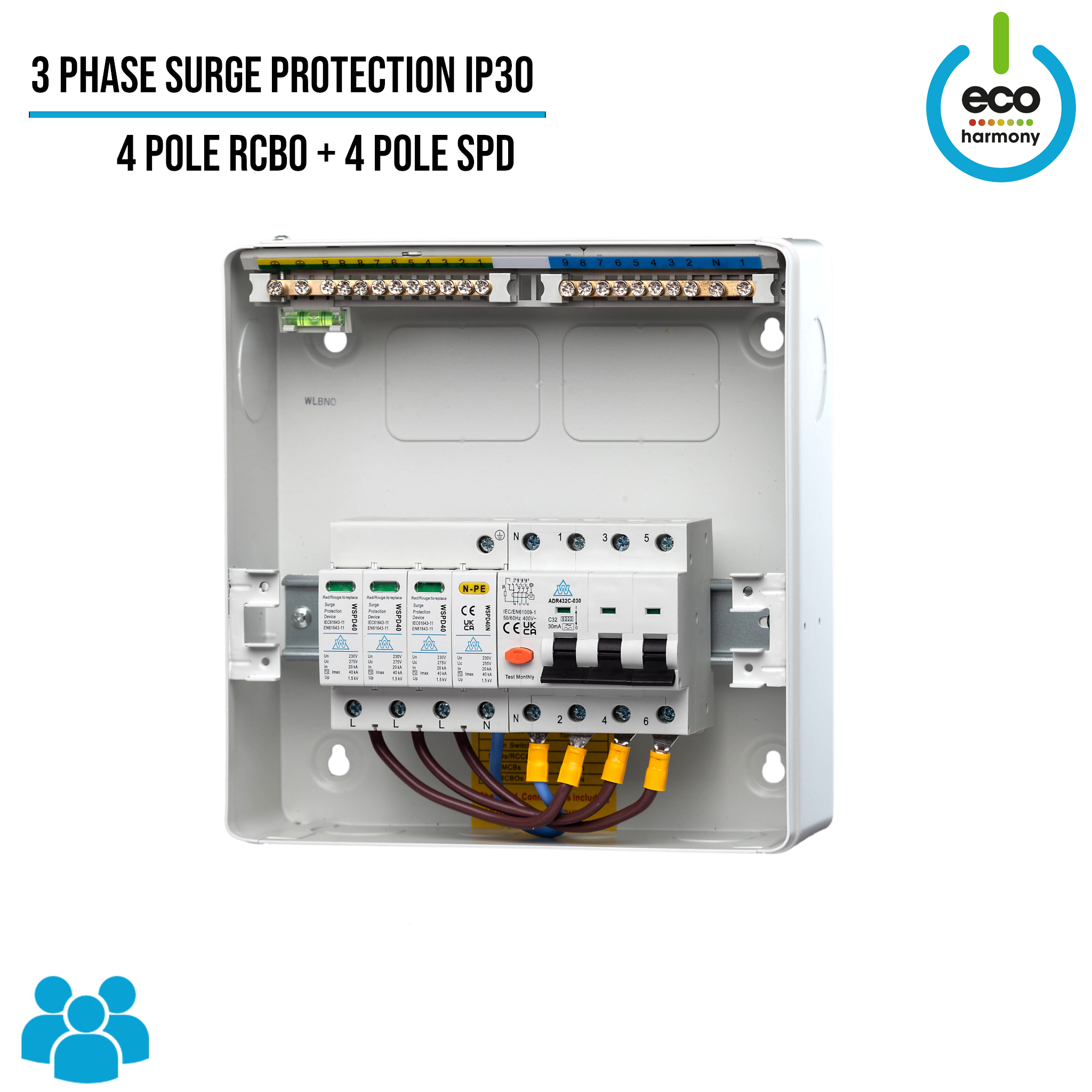How RCBO CONSUMER UNITS Boost Electrical Safety in Residential Spaces
Wiki Article
The Role of Customer Systems in Reliable Energy Management Solution
Consumer systems are indispensable to reliable energy administration systems, serving as the main distribution factors for electrical power within frameworks. The development of wise modern technologies has better boosted their functionality, allowing for real-time data surveillance and nuanced power usage analysis.Understanding Customer Devices

Understanding the duty of consumer units begins with recognizing their important feature in protecting electric systems. By separating mistakes within certain circuits, customer devices avoid prevalent outages and prospective fire risks. This seclusion is accomplished with making use of circuit breakers that journey or fuses that strike when a fault is discovered, therefore cutting off the electrical circulation to the affected circuit.
In addition, customer systems promote the well organized distribution of power, enhancing the performance of energy use. They allow for the systematic monitoring of electric tons, which can be specifically crucial in commercial and commercial settings where need can change significantly. Correctly kept consumer devices add to the durability of electric systems and assist in reducing downtime created by electrical failures, ultimately supporting the seamless operation of energy-dependent centers.
Smart Technologies Combination

A crucial benefit of wise consumer units is their capability to leverage advanced algorithms and artificial intelligence for anticipating analytics. This permits preemptive adjustments based on usage patterns, weather prediction, and various other variables, significantly increasing total effectiveness. Additionally, smart customer units promote demand response programs, where power usage can be dynamically readjusted during peak periods to support the grid and lower prices.
The combination of renewable resource sources, such as solar and wind, is additionally structured via smart customer units. By intelligently managing the intermittency of these sources, these devices make sure a trustworthy and balanced power supply. In addition, wise customer units improve individual interaction by offering detailed understandings and remote control capacities via mobile applications, cultivating an extra positive technique to energy conservation and sustainability.
Tracking Power Usage
Structure on the abilities of smart technologies assimilation, keeping track of power usage comes to be an important focus within energy monitoring systems. By leveraging advanced metering facilities (AMI), real-time data on energy use can be accumulated at granular degrees, offering important understandings right into consumption patterns and peak need durations.Smart meters and Web of Points (IoT) tools play a crucial function in this surveillance procedure. These devices can track energy use in real-time, transferring data to centralized systems for evaluation. The gathered data is after that refined with innovative formulas to discover anomalies, predict future usage, and recommend optimization methods. In addition, cloud-based options use scalable systems for saving and assessing large datasets, assisting in remote surveillance and control.
The combination of these modern technologies not only encourages consumers with comprehensive information regarding their power usage yet additionally supports utility providers in handling tons circulation a lot more effectively. Eventually, accurate and continual surveillance is vital for accomplishing power discover here effectiveness, expense financial savings, and sustainability objectives within energy administration systems.
Optimizing Home Appliance Use

One efficient technique entails recognizing optimal and off-peak hours to change energy-intensive tasks, such as laundry or dishwashing, to times when energy need is lower. This not only minimizes stress on the grid but likewise takes advantage of lower power tolls. Furthermore, integrating machine knowing algorithms permits predictive maintenance, making sure home appliances run at ideal efficiency and lengthening their life-span.
Energy administration systems can also integrate user-specific choices and behaviors to tailor home appliance use timetables. Wise lights systems can readjust illumination based on tenancy and natural light availability, while A/c systems can preserve comfort levels without excessive power usage.
Encouraging Sustainability
Advertising sustainability within energy management systems involves not just boosting efficiency yet additionally cultivating eco accountable techniques. Customer systems are essential to this procedure, as they provide real-time data and control mechanisms that enable individuals to check and decrease their power consumption. By leveraging sophisticated modern technologies, consumer units can determine energy-saving possibilities and assist in the assimilation of renewable power resources like solar and wind power.One vital facet of promoting sustainability is informing customers on the benefits of liable power use. With thorough understandings given by consumer systems, individuals can make educated choices that lessen their carbon footprint. For circumstances, these devices can recommend ideal times for running high-energy devices based upon grid need and renewable resource availability, thus lowering reliance on fossil gas.
In addition, customer systems sustain the adoption of clever grid modern technologies, which boost the total performance and dependability of energy circulation. By enabling two-way interaction in between customers and utility companies, these systems can dynamically change to energy demands, decreasing waste and promoting using lasting see page power methods.
Final Thought
Customer units, as integral components of power administration systems, significantly improve electric safety and security and performance within buildings via circuit protection and wise innovation assimilation. Additionally, the unification of sustainable energy sources advertises lasting practices, contributing to reduced general power intake and reduced carbon footprints.Advances in smart modern technologies have actually reinvented the abilities of power monitoring systems, particularly with the integration of wise consumer systems.Building on the capabilities of wise modern technologies assimilation, checking energy intake comes to be a vital focus within power administration systems.Reliable device use optimization is an essential component of energy administration systems, intending to enhance effectiveness and minimize unnecessary energy consumption.Customer devices, as integral parts of power management systems, substantially improve electrical safety and performance within structures via circuit defense and wise modern technology integration. Additionally, the unification of eco-friendly energy sources advertises lasting techniques, contributing to decreased overall power intake and reduced carbon footprints.
Report this wiki page